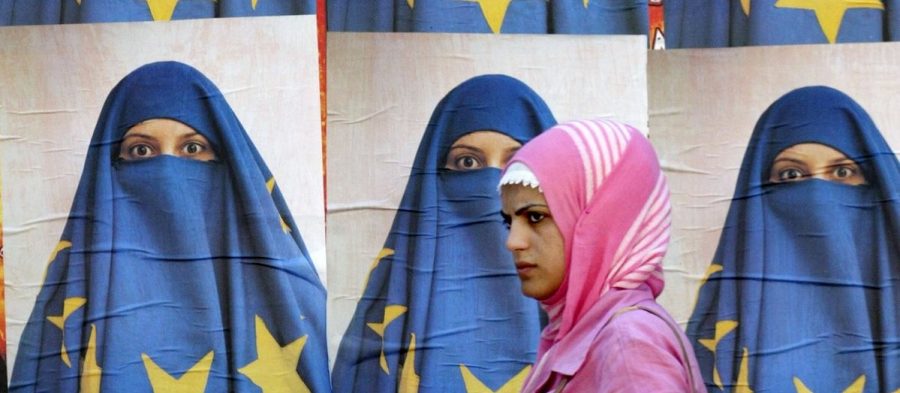Banning the Burqa
The European Court of Justice has ruled that employers can ban staff from wearing visible religious symbols. The ruling came after a case was brought by two women, from Belgium and France, who had been banned from wearing headscarves.
Joshua Rozenberg, a lead journalist and commentator for BBC, tweeted, “Headscarf ban not direct discrimination, says @EUCourtPress. May be indirect discrimination that can be justified. More on R4 Law in Action.”
The European Court of Justice issued the following in the primary ruling:
It is directly stated that, “The Court therefore concludes that the prohibition on wearing and Islamic headscarf, which arises from an internal rule of private undertaking prohibiting the visible wearing of any political, philosophical or religious sign in the workplace. This does not constitute direct discrimination based on religion or belief within the meaning of the directive.”
“By contrast, such a prohibition may constitute indirect discrimination if it is established that the apparently neutral obligation it imposes results, in fact, in persons adhering to a particular region or belief being put at a particular disadvantage.”
“However, such indirect discrimination may be objectively justified by a legitimate aim, such as the pursuit by the employer, in its relations with its customers, of a policy of political, philosophical and religious neutrality. Provided that the mean of achieving that aim are appropriate and necessary. It is for the Belgian Court of Cassation to check those conditions.”
The European Court of Justice in the secondary ruling decided that it cannot be considered a genuine and determining occupational requirement:
“The Court of Justice points out that it is only in very limited circumstances that a characteristic related, in particular, to religion may constitute a genuine and determining occupational requirement, a concept which refers to a requirement that is objectively dictated by the nature of the occupational activities concerned or of the context in which they are carried out and does not cover subjective considerations, such as the employer’s willingness to take account of the particular wishes of the customer.”
The answer given by the court is, therefore that the willingness of an employer to take account of the wishes of a customer no longer to have the services that employer provided by a worker wearing and Islamic headscarf cannot be considered a genuine and determining occupational requirement within the meaning of the directive.
Randon Peyo, a junior at Jefferson-Morgan had this to said, “I believe that the separation of church and state is not a bad thing. It allows for less fights and discrimination because someone does not share the same religion as them.
In response, Luxembourg went a step further and have proposed a law which would make it illegal to hide one’s face in public spaces. There are three parties that are working on this, which are the liberal DP, the social-democratic LSAP and the Greens. The proposed law will ban any clothing which would make identification impossible, which would essentially ban the burqa.
“I’m glad that law isn’t active here,” said, senior Jonathan Perez. “It doesn’t seem right to deny or fire someone over their religious beliefs.

Michael Pochron is a senior and a second year Journalism student.
He actively participates in the Waynesburg Rifle Team and the J-M Marching Band as...



